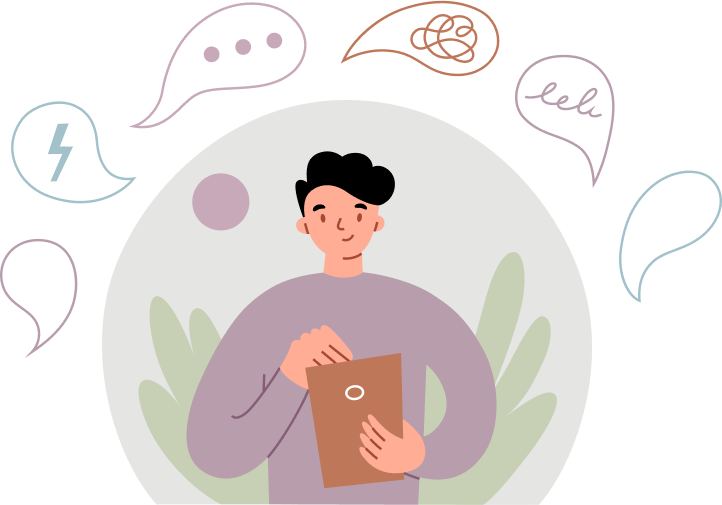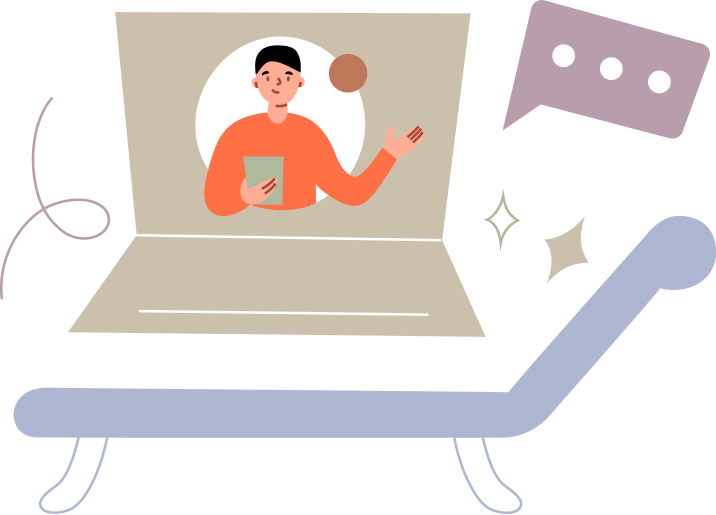Men and Depression: Recognizing the signs and seeking help

Depression is a widespread mental health challenge that affects millions of individuals, regardless of age, background, or location. Despite growing awareness, there's an often-overlooked aspect of this condition: the unique way depression manifests in men. Societal expectations around masculinity—emphasizing traits like stoicism, self-reliance, and emotional control—can make it difficult for men to even recognize, let alone acknowledge, their emotional struggles. This article aims to uncover how depression shows up in men, address the harmful stereotypes, and provide practical, compassionate advice for seeking the support that every man deserves.
Recognizing the signs of depression in men
Depression doesn’t always look the way we expect it to. For men, it can be harder to identify because it often doesn’t show up as the stereotypical sadness or crying. While men can experience the same signs as anyone—feelings of hopelessness, persistent fatigue, changes in sleep or appetite—there are often additional signs that might not immediately seem linked to depression.
Instead of the typical sadness, you might notice:
-
Irritability and anger: Increased frustration, outbursts of anger, or a short temper that disrupt relationships at home or work.
-
Increased risk-taking: Engaging in reckless behaviors, such as dangerous driving, excessive gambling, or risky activities, as a way to cope with difficult emotions.
-
Substance abuse: Relying more heavily on alcohol, drugs, or prescription medications to numb feelings or escape from internal pain.
-
Withdrawal and isolation: Pulling away from friends, family, and activities that once brought joy. This can show up as avoiding home, working long hours, or feeling an emotional disconnect from loved ones.
-
Physical symptoms: Unexplained headaches, digestive problems, chronic pain, or other physical ailments that don’t improve with conventional medical treatment.
-
Difficulty concentrating or making decisions: Struggling to focus, forgetfulness, or feeling indecisive at work or home.
-
Loss of interest: A lack of enthusiasm for things that used to bring pleasure, like hobbies, socializing, or sex.
These signs aren’t signs of weakness—they’re indicators that something deeper is going on. Think of them like a warning light on the dashboard of your car; they point to the need for attention and care. Recognizing these symptoms in yourself or someone you care about is the first step toward healing.
Why men often avoid seeking help
Despite how common depression is among men, statistics show they’re much less likely to seek help than women. This hesitation is rooted in various societal, cultural, and personal factors that make seeking help challenging.
Some of the main reasons include:
-
Fear of being perceived as weak: From a young age, men are often taught that they must be strong, self-reliant, and stoic. Admitting emotional struggles can feel like a violation of these ideals, leading to fear of judgment or rejection.
-
Cultural expectations to "handle problems alone": Many men internalize the message that they should “tough it out” and deal with problems on their own, which can lead to bottling up emotions or denying the need for help.
-
Misunderstanding the symptoms: As noted, depression in men often shows up as irritability, anger, or substance use, not just sadness. Men may not realize these behaviors are symptoms of depression, chalking them up to stress or a “bad mood.”
-
Limited emotional vocabulary: Men are often not encouraged to express their feelings, which makes it harder to articulate what’s going on emotionally.
-
Stigma: The stigma surrounding mental health is still strong, and men may worry about how seeking help could affect their reputation or career.
This avoidance comes with significant consequences. Untreated depression can spiral into more serious issues, such as substance abuse, chronic physical health problems, and even suicidal thoughts. In fact, men are at a higher risk of suicide than women, and these barriers often prevent them from reaching out for help when they need it the most.

How therapy helps
Therapy is a safe, confidential space where men can explore their emotions and struggles without judgment. It’s an environment specifically designed for self-exploration, healing, and growth.
One of the most widely used and effective therapies for treating depression is Cognitive Behavioral Therapy (CBT). CBT is a structured, practical approach that helps individuals:
-
Identify negative thought patterns: Recognizing distorted thoughts that contribute to low mood, such as “I’m a failure” or “No one cares about me.”
-
Challenge these thoughts: Learning strategies to question the validity of these harmful thoughts.
-
Replace them with healthier alternatives: Shifting towards more balanced, realistic, and positive ways of thinking.
CBT focuses on skill-building, which is why it resonates well with many men who prefer solutions-focused approaches. It's not just about talking—it’s about gaining practical tools to manage symptoms, reduce stress, improve relationships, and build resilience.
Therapists who specialize in working with men understand the nuances of male communication and can create an environment where even deeply guarded feelings are explored safely. Therapy helps men understand that seeking help is a strength, not a weakness, and that taking care of mental health is just as important as physical health.
The benefits of online therapy
For men who feel hesitant about seeking traditional in-person therapy, online therapy offers several unique advantages that can ease the process.
Here are some key benefits:
-
Privacy and discretion: Online therapy can be done from the comfort of your own home or any private space, eliminating concerns about being seen entering a therapist’s office.
-
No commute: Online therapy removes the logistical challenges of commuting, parking, and waiting rooms. You can schedule sessions during your lunch break, before or after work—whatever fits into your day.
-
Wider choice of therapists: Online platforms offer access to a larger pool of licensed therapists, allowing you to find someone with expertise in treating male depression and one who matches your communication style or background.
-
Comfort of your own space: Being in your own environment can reduce initial anxiety and make you feel more at ease. Many find that they’re able to open up more when they’re comfortable in a familiar setting.
For men who are unsure about therapy, online sessions can be a low-pressure way to experience the process, connect with a therapist, and assess if therapy feels like the right fit.
First steps toward support
Taking the first step toward mental health support is often the hardest, but it’s also the most important. Here are some actionable steps to help you get started:
-
Complete a self-assessment: Many mental health websites offer free, confidential self-assessment tools like the PHQ-9 (for depression) or the GAD-7 (for anxiety). These can help you identify if you’re experiencing symptoms and start the conversation.
-
Talk to a trusted friend or family member: While it’s no replacement for professional help, speaking to someone you trust can be incredibly validating and relieve some emotional burden.
-
Schedule a consultation with a therapist: Many therapists offer free initial consultations. This is a great, low-pressure way to ask questions and find a therapist you feel comfortable with.
-
Explore online therapy platforms: Look for reputable online platforms that connect you with licensed professionals. Many of these platforms let you review therapist profiles to find someone who specializes in male mental health or depression.
The most important thing is taking that first step. It may feel daunting, but it’s a sign of strength and a commitment to your well-being.
Conclusion
Depression doesn’t look the same for everyone, and it certainly doesn’t fit into a box. For men, the symptoms can be subtle, and the barriers to seeking help are real. But reaching out for support isn’t a sign of weakness it’s an act of courage and self-care. With the right therapy, including the flexibility and privacy of online therapy, men can overcome depression, reclaim their vitality, and live fulfilling lives. Don’t wait take that first step toward healing today.
Amira Khan
Mental Health Advocate
Category





